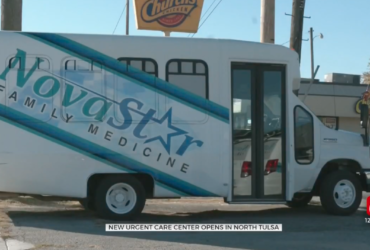Research indicates that Black adults in redlined communities may have an elevated heart failure risk compared to those in unaffected areas.
According to the American Heart Association, “Redlining refers to a now-illegal practice that denied low-interest mortgage loans to Black, Asian, Hispanic, and immigrant families.”
A study in the American Heart Association Journal Circulation reports no added heart failure risk for white residents in redlined areas. This study scrutinized nearly 2.4 million adults from various historically redlined neighborhoods.
Despite the 1968 redlining ban, its detrimental impacts on health and finances persist. Prior research correlates redlining with an increased likelihood of strokes, hypertension, Type 2 diabetes, and premature cardiac-related deaths.
Diet and nutrition play a pivotal role in cardiovascular health. However, “We just had two major shopping centers close. We had the Walmart on Silver Spring and then we had Jewel Osco on Lisbon and Center. We keep having our resources close in the inner city which is making people travel to the outskirts to get what they need and you have to remember impoverished neighborhoods have a lack of transportation. Therefore they have to rely on the local corner stores that have an up-charge on products,” said Pastor Veloris Mann, Chaplaincy Program Coordinator with the Salvation Army Milwaukee.
Heart failure, affecting approximately 6.7 million U.S. adults, hits Black individuals harder. It’s a progressive ailment where the heart can’t circulate blood efficiently, stemming from either a loss of pumping capability or heart muscle rigidity.
Dr. David Ashpole, a cardiologist at Ascension Medical Group, emphasizes the importance of prevention: “Frequently we take care of people that develop either a heart attack or heart failure and a lot of our procedural things like stents and bypass surgery are part of the treatment but our goal is prevention to treat those with the potential for heart failure and heart attacks before it actually happens.”
He adds, “We do know that there are a variety of factors that contribute like smoking is a major contributor, but we have seen a reduction over time. In addition to hypertension, high blood pressure, diabetes and high cholesterol are particular factors that lead to the development of heart disease. Other things we look at are family history of heart disease. Statistically there are additional things associated with higher risk of hypertension which include social determinants of health, socioeconomic status and race.”
Inadequate healthcare services in redlined areas exacerbate these issues. Dr. Ashpole believes, “Improving access is important. I think that having primary care physicians available for all our populations is important and having those locations more convenient I think improves the chance of someone establishing care with a primary care physician and that care will continue.”
Pastor Mann advocates for proactive measures: “We need more small mini check up clinics where you can get your blood pressure checked, get your diabetes checked and refill prescriptions. It can help with preventative measures.”
“This is an issue that is important to Ascension and important to those of us who take care of people in Milwaukee. We worked with the Department of Health Services for the past couple of years on a project particularly looking at defecto social determinants of health, treatments of high blood pressure and hypertension trying to find innovative ways to improve our hypertension control rates in populations who are at a higher risk. In particular we looked at expanding our clinic beyond just the office so we added a nurse practitioner that contacts patients that we identified with significant social determinants and challenges and whose blood pressure wasn’t controlled to help them with education. We have to find new, different and better ways to help people with what they need in a way that works for them,” Dr. Ashpole emphasized.
Source: milwaukeecourieronline.com, authored by Karen Stokes













Leave a Review